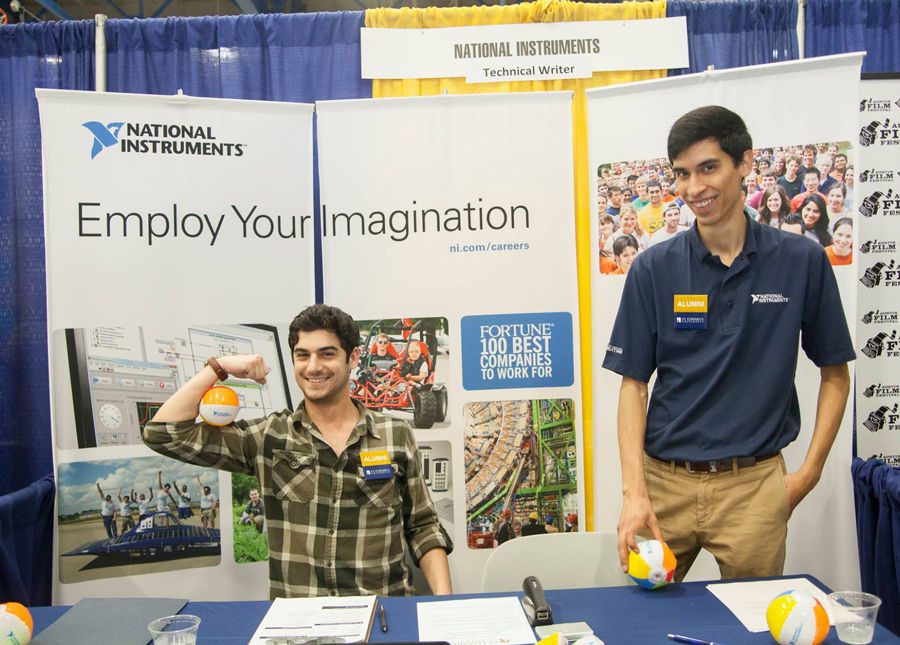Academic, career plans vary as seniors prepare for real world
This year, Career and Professional Development is using a new nationally recognized senior survey so that St. Edward’s data can be better compared to other schools.
As the last few weeks of school approach and summer is on the horizon, St. Edward’s University seniors are getting ready for graduation.
There is an endless possibility of things to do after graduation, from graduate school to finding a job to taking some time off.
Many students do not have a definitive plan until after graduation. That is why St. Edward’s Career and Professional Development has found it hard to keep track of graduated seniors’ future prospects.
One challenge that Career and Professional Development has faced is keeping in contact with alumni, especially after their St. Edward’s email addresses are not available anymore. One solution to this is to get seniors’ information before they leave through an exit survey.
This year, Career and Professional Development is using a new nationally recognized senior survey so that St. Edward’s data can be better compared to other schools.
Director of Career and Professional Development Raymond Rogers said his goal is to try and get as many seniors to answer the new Beyond the Hilltop survey. His goal is a 90 percent response rate, which is two percent higher than the amount of responses St. Mary’s University received last year.
Seniors will fill out this survey before graduation, and again three months, six months and one year afterward to help St. Edward’s get better data and get a feel of how students are doing after graduating.
“I know it takes a while to find your feet and figure out, ‘Okay, what am I doing?’ We know that a good number of students don’t start looking for work until maybe a month prior to graduation, or three months after graduation depending on what they’re going to be doing at the time. That’s why the one-year-out data is of more interest to me,” Rogers said.
Brooke Blanton graduated from St. Edward’s in December 2014 and plans to walk at the graduation ceremony this May. She knew exactly what she was going to do after graduation.
Blanton currently works for a company called Main Street Hub as a social media community manager.
She started applying for jobs the summer before she graduated and got hired by the first company to which she applied.
“I went into my last semester already knowing what I was going to do which made the last semester so much easier, so I advise everybody to start as early as physically possible,” Blanton said.
As for Allison Bahneman, she has a pretty set plan for after graduation. She will be moving back to Maryland and wants to work for her old school, Bishop McNamara, as part of a fellowship. She still has to apply, but she loves the idea of giving back to her high school.
Bahneman eventually wants to work in the field that she studied as an undergrad: global studies.
“If I really want to pursue a career in international affairs, it makes sense to go back to the (Washington D.C., Maryland, Virginia area). Plus, there are a few good schools in D.C. that I’m interested in for graduate school, which I think I’d like to pursue in a couple of years or so,” Bahneman said.
William Haynes has many prospects, but is still waiting to hear back from a few programs. He is a Fulbright finalist and got accepted into several graduate schools including Georgetown University and Florida International University.
Haynes is not a traditional undergraduate — he studied abroad for two of the years that he was at St. Edward’s, but he still feels that the school helped him prepare for life after graduation.
Back in Career and Professional Development, Rogers is confident that 2015 graduates will have their pick of what they want to do when they graduate. He explained that because the economy is doing so well, employers are hiring entry level positions more than ever, and graduate school competition is less than years prior due to the good economy.
“Our seniors who are graduating right now, although they didn’t plan it this way, how lucky it is for them to be graduating in this economy,” Rogers said.







